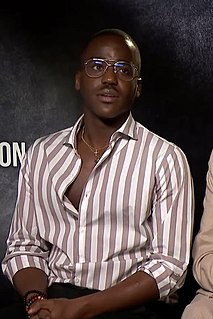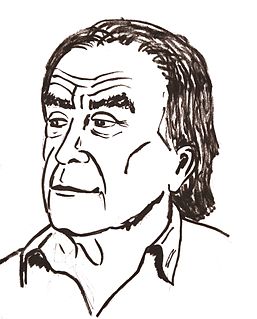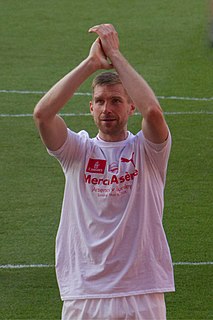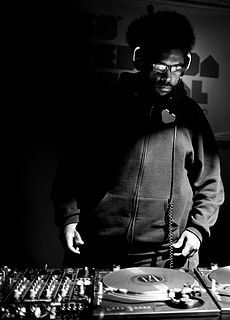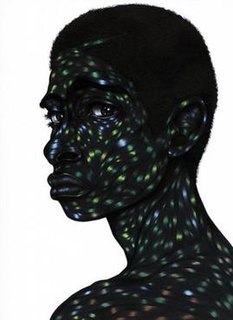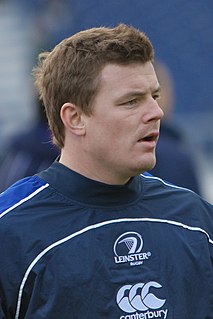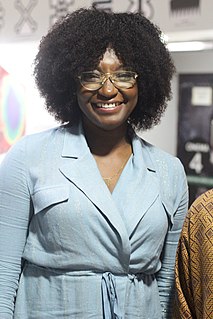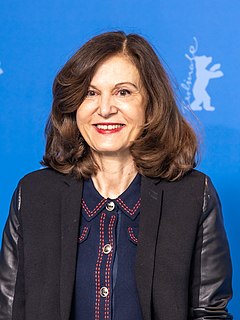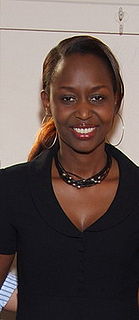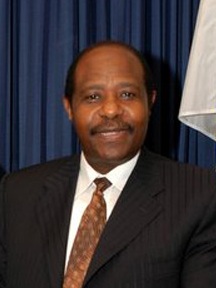A Quote by Ncuti Gatwa
I went to drama school so I had quite a regimented classical training, regimented process of analyzing a script. I'll go through the whole script and highlight everything my character says about me, and in another color I'll highlight what other characters say about me, and I'll highlight all the things I say about other characters.
Related Quotes
Any script, even like The Founder, if it's something that I imagine myself playing this character or that character - any of the characters, basically - how do we flesh these characters out to be good enough to have amazing actors that come in that make it really difficult for them to say no? Even though I'm not right for any of those parts, that's just kind of how we go about it.
I've always felt the portrait is an occasion for marks to happen. I've never viewed the portrait as about the sitter. Even when I go to the National Portrait Gallery, I'm not thinking about the sitter; I'm thinking about how the artist chose that color or that highlight. It becomes about the time, place, and context.
As a young filmmaker, I shot a lot of stuff because I wanted to make sure that I got everything, but now I've gotten much more precise with my shooting. Editing is a whole other layer because then, sometimes you realize characters don't even need to say this or that. It becomes an issue of exposition, and over-explaining something. In the script, I'd reinforce certain things about what I wanted people to know two or three times, but in the editing room, I'd be like, "I only need to say this once, maybe twice."
The first thing, when I read the script, is that I need to care about what happens and feel compelled by the story and engaged by the characters. It needs to resonate with me, even if what the characters are going through is not something that I have experienced in my life. I have to feel like it has some sort of meaning to me.
I had made a list of about ten things that I remembered from the original 'Total Recall' before I went back and watched. It had been about twenty years. I wanted to write it out before I watched it again. And I felt if those things stayed with me long enough, those are the things that I wanted to highlight.
The script in many ways is limiting and novel is liberating. You get to go into the heads of your characters and their background and have fun with them; something you are discouraged from doing with a script. With the novel, I can tell you what the characters are thinking, I can tell you their view of the world, background information, things I wouldn't dare touch in the script.
